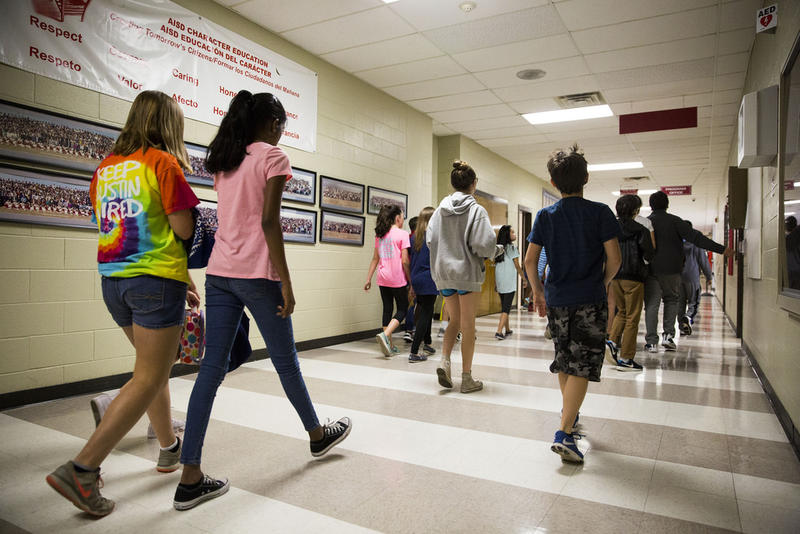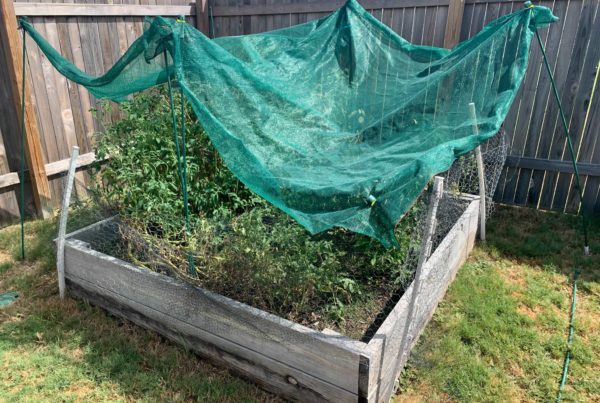The COVID-19 pandemic is being linked to poor mental health among adolescents.
New research from the University of Texas Medical Branch in Galveston shows that while lockdowns early in the pandemic were necessary to prevent the spread of the virus, keeping young people out of schools put an unprecedented mental health strain on this generation. And there could potentially be long-term negative outcomes.
Jeff Temple is vice dean for research at UTMB’s School of Nursing and the director of the Center for Violence Prevention. Listen to the interview above or read the transcript below.
This transcript has been edited lightly for clarity:
Texas Standard: What kind of strains on children and adolescent mental health are we talking about here?
Jeff Temple: You know, the lockdowns, while necessary, they kept teens, children away from the developmental milestones that we expect at that age: developing autonomy away from your parents, making mistakes, all those normal things that are supposed to happen around that age was interrupted. And on top of that, we have a worsening mental health problem, as it was even before the pandemic. And then even with social media, we’re starting to see some negative effects from that in terms of how teens view themselves, and view themselves in the world. So I think this was all a perfect storm that we’re going to see dramatic effects for a generation to come.
You looked at Texas youth specifically?
Correct. It was part of a study. It was kind of serendipitous that we started a study pre-pandemic in 2018. It was a healthy relationship program, which we showed that prevented dating violence. But because it started before the pandemic, we had a lot of information on psychosocial health, mental health, substance use. And then in 2020, when we went into the lockdowns, we added questions for our follow up interviews on COVID-related stress and loneliness and isolation. And we were able to control for the pre-pandemic psychosocial health and substance use to really show that it was probably this COVID-related stress and isolation that was the contributor to poor mental health.
When you say poor mental health, what specifically are you referring to? You mentioned substance abuse issues, for example.
In this particular study, we defined it as symptoms of depression, symptoms of anxiety, and then various forms of substance use. So cigarette smoking, vaping, alcohol use and then hard drugs and basically everything we saw that COVID-related stress, the economic impact on families, the isolation was related to all of that stuff.
Interestingly, we found that substance use was inversely related. So the kids who were more likely to stay at home and abide by the stay at home orders were less likely to use substances. And while that might sound like a positive finding, it really isn’t because we can’t keep kids locked down, obviously. So what that’s telling us is that where the kids are getting these substances are hanging out after school or even during school and so that’s something that we need to be mindful of.
Dean Temple, we’ve heard anecdotally, more parents seeking counseling for their children, having actually difficulty finding space for their children to receive treatment. We’ve heard about grades slipping in schools and that sort of thing. And I think parents hearing what you’re saying obviously wonder, well, what can we do? What can we do as parents to help our kids who have suffered during this pandemic? What would you tell them
You know, two-part answer and in the first, saying it is scary. The resources are just not out there. But, you know, not all this requires someone to see a psychologist or a mental health professional. What it requires us to do is really listen to our kids and look for changes in them as they’re starting to stay at home, even post-pandemic, stay at home more, or they just aren’t interested in doing things like they used to be. Those are all pretty good signs that maybe something is going on. And so being there for them, listening to them, believing them. And I think one of the silver linings of this pandemic was realizing that social interaction is important, so that’s for parents as well and setting that good role model, but for kids and making sure that they are getting that interaction with folks.














